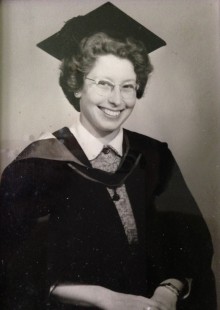Edith Forrester
Edith was born in Nordhausen, Germany. She describes what happened when the Gestapo arrived at her home and arrested her father. She speaks of her departure from her family when she joined the Kindertransport and her mother’s failure to escape. She emphasises her love of Britain, her pride in being Jewish and her Christian faith.… Continue Reading Edith Forrester

